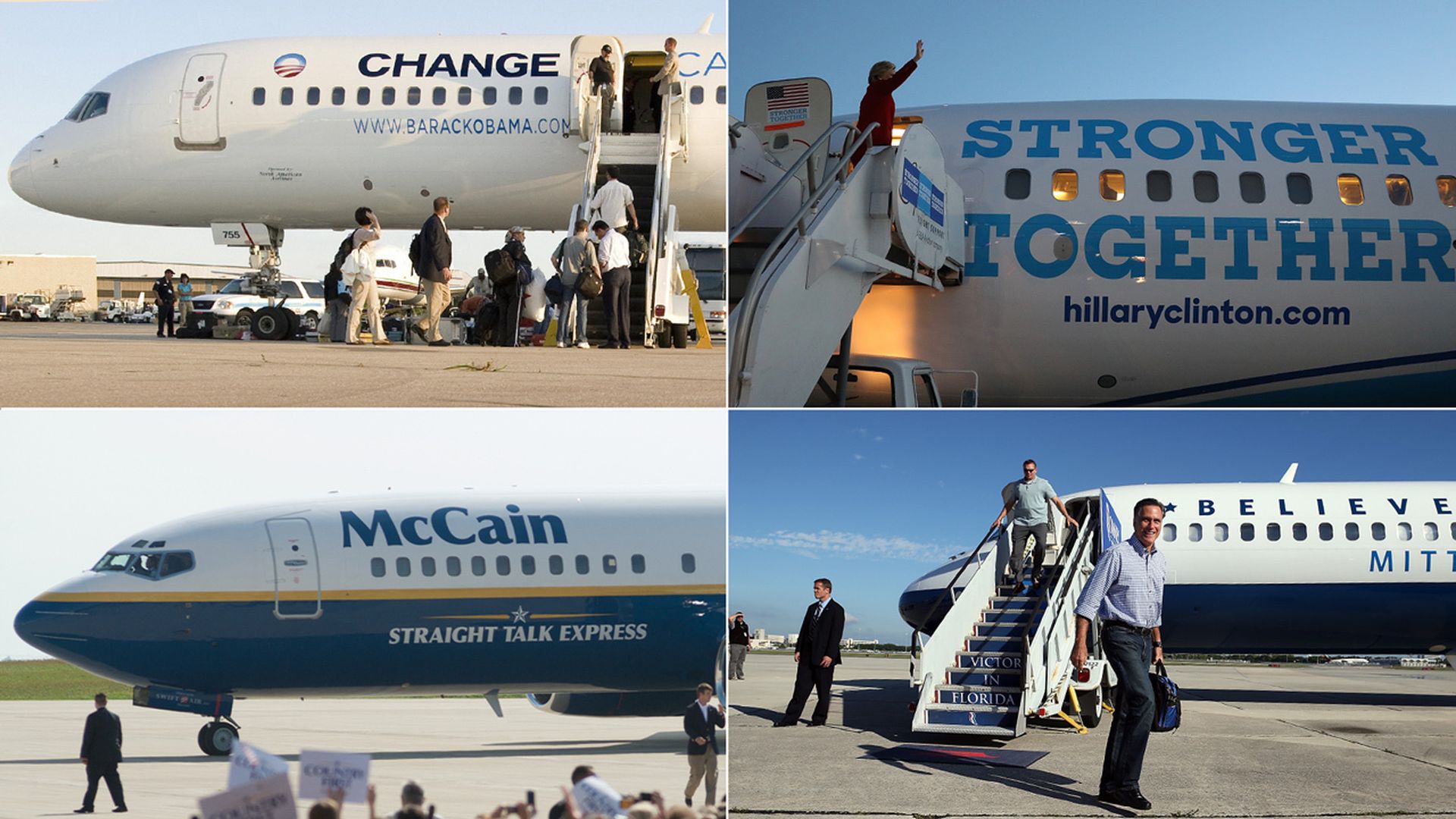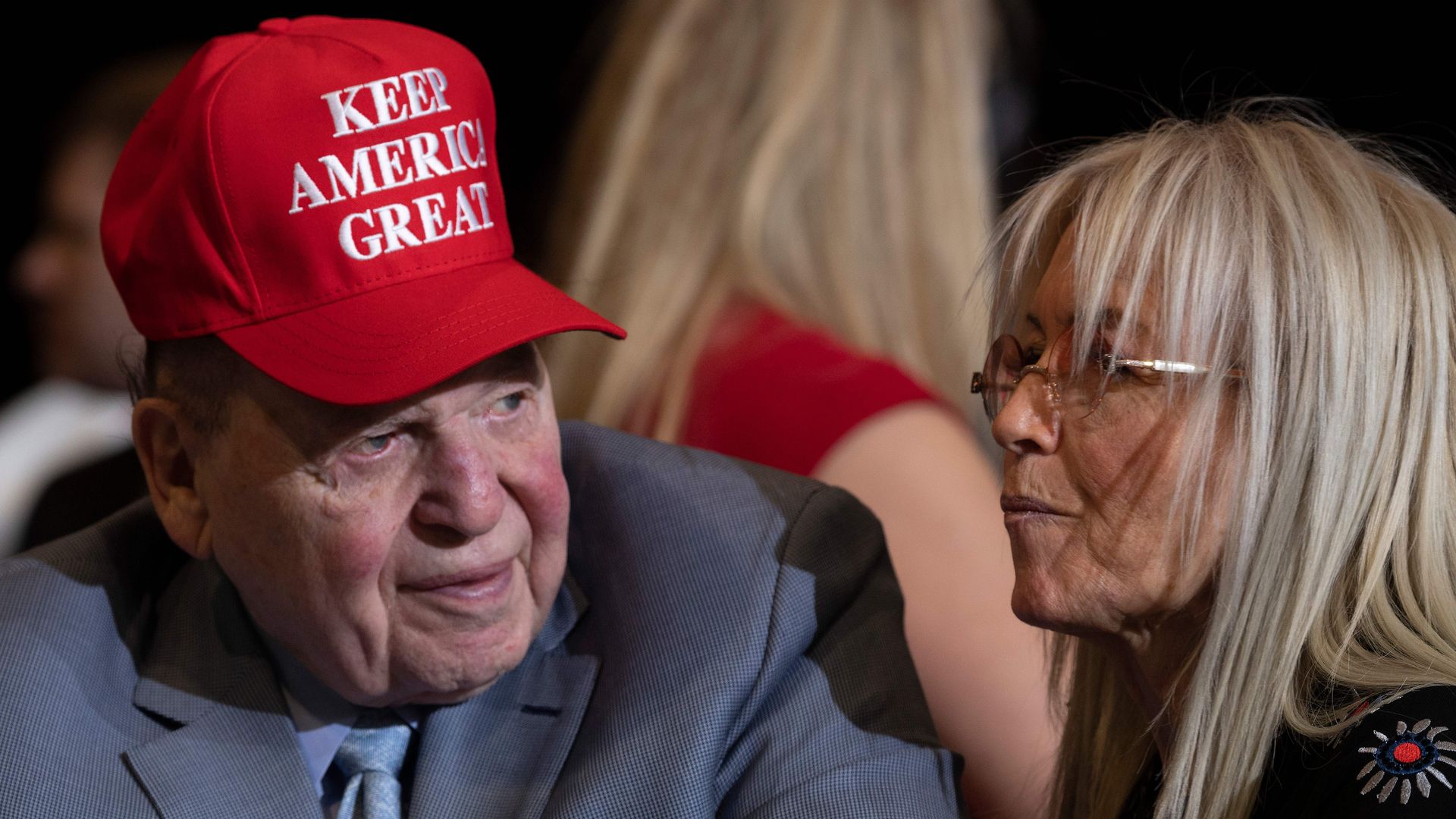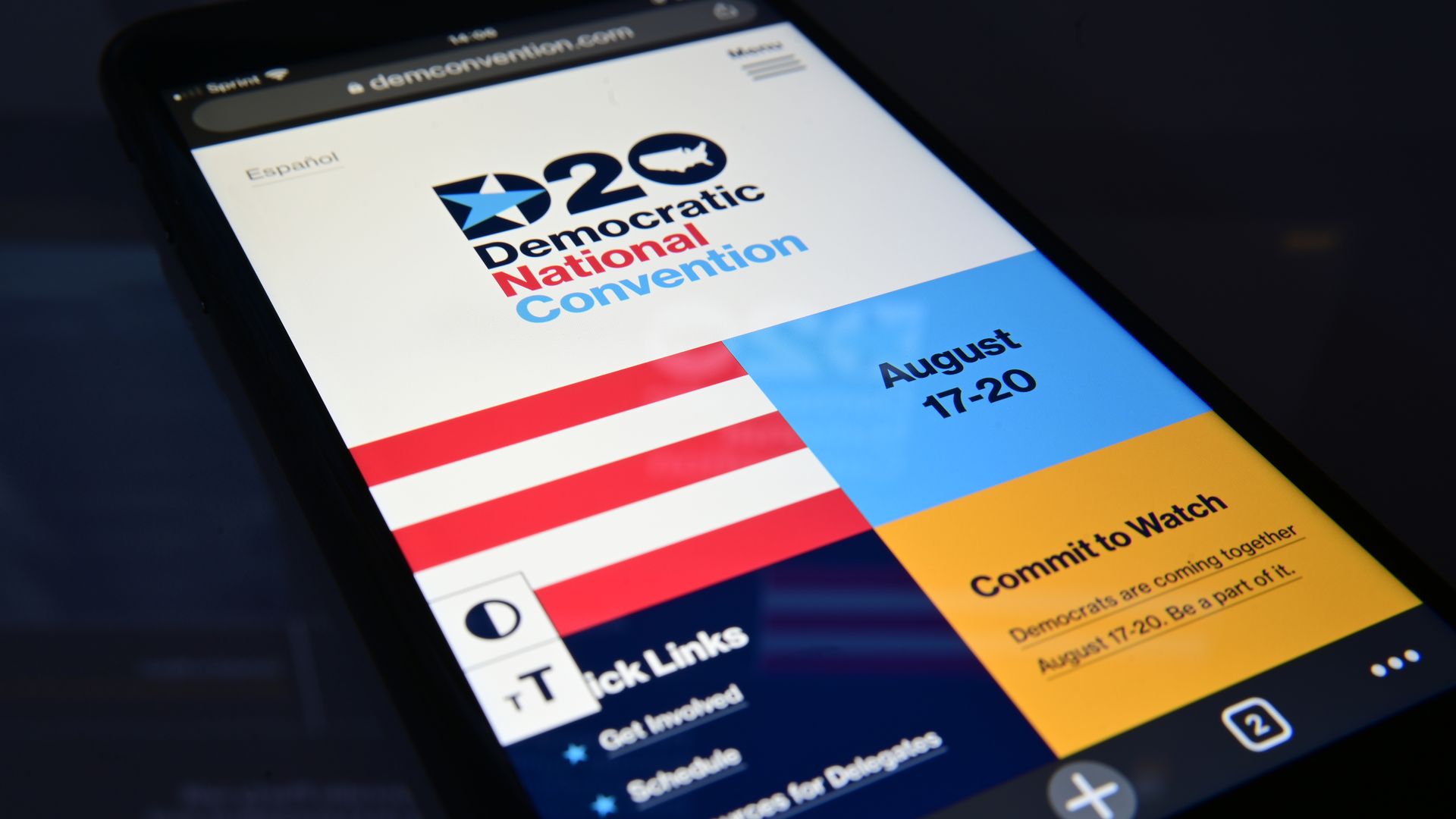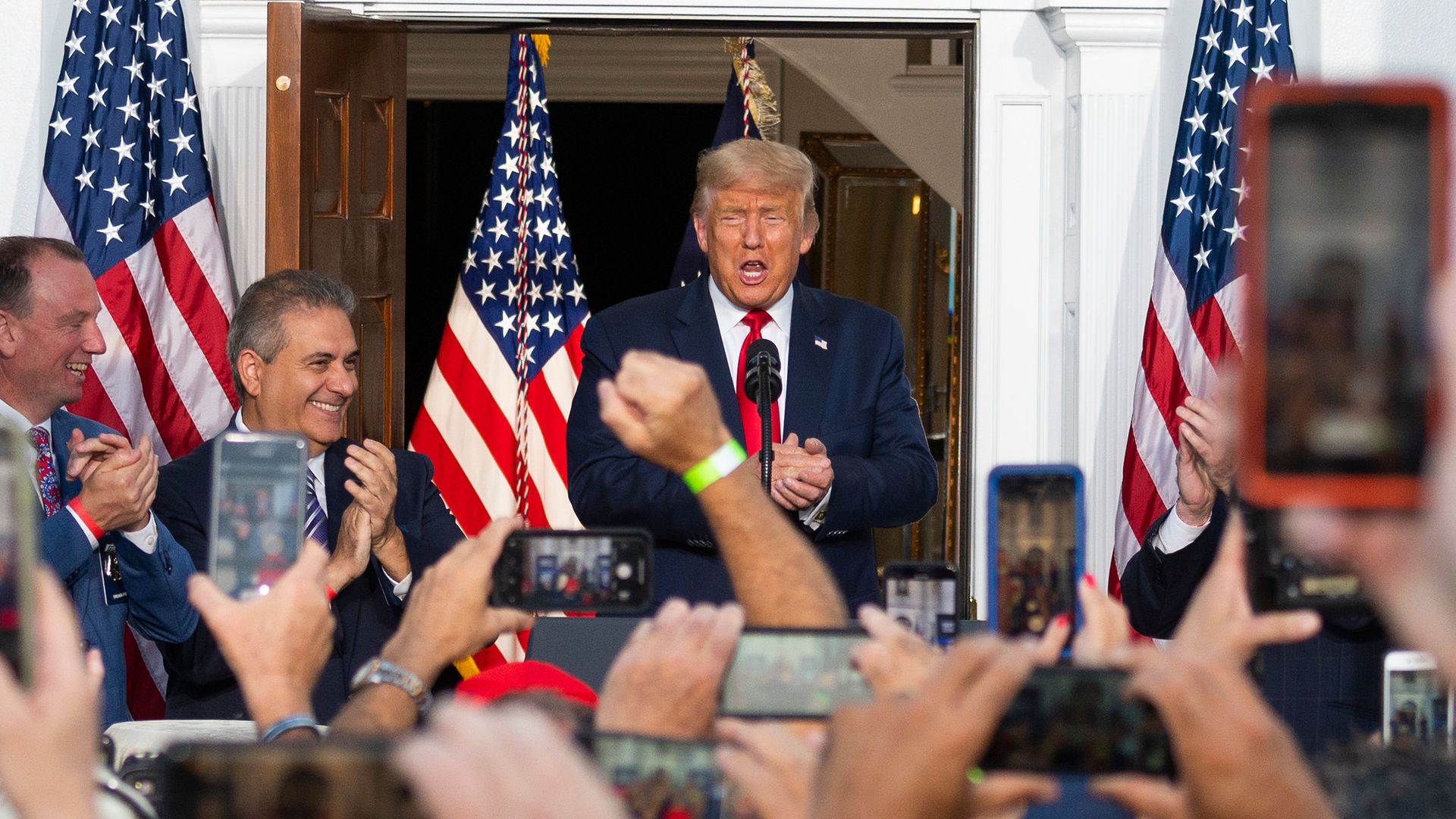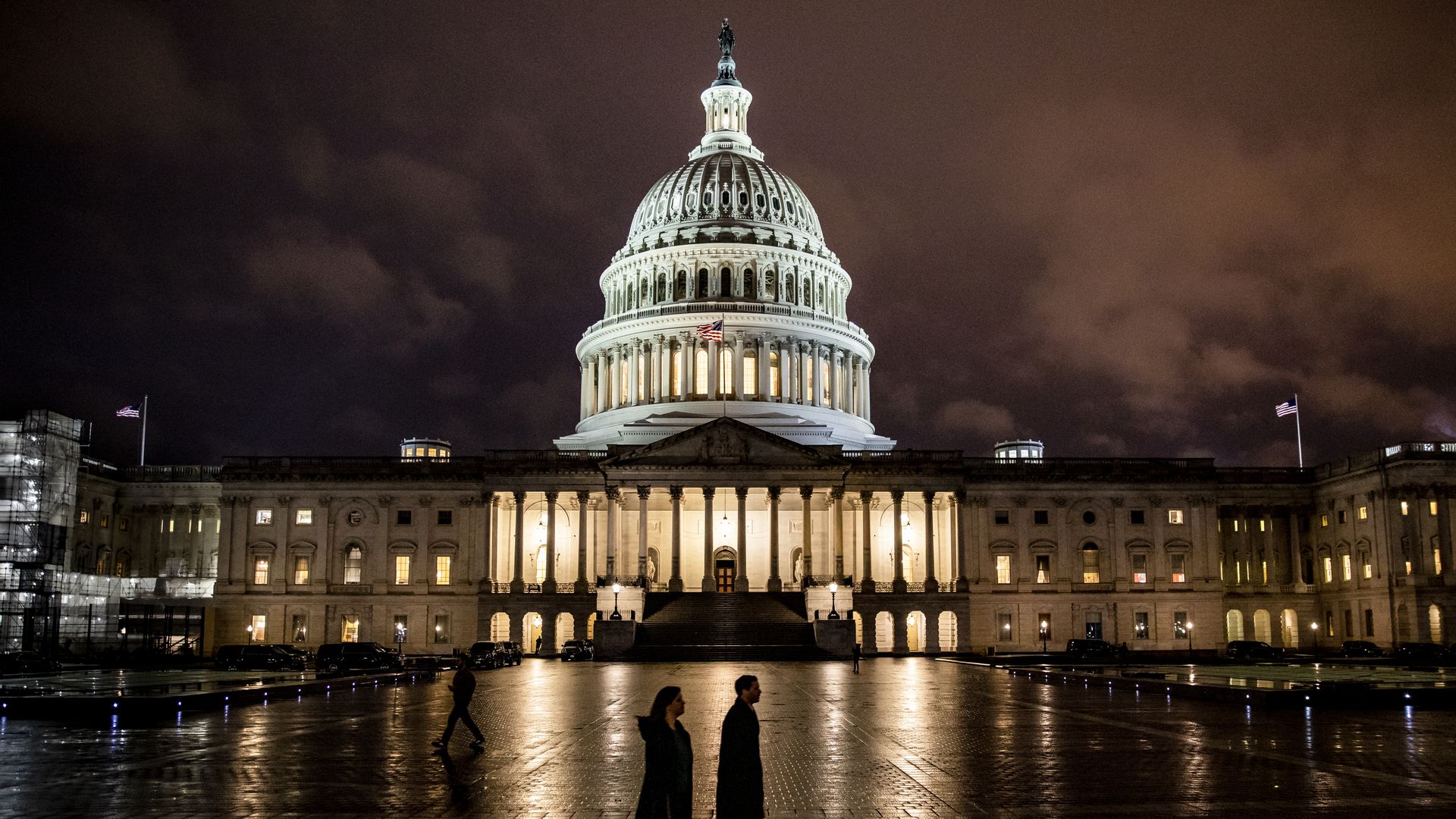Axios Sneak Peek

August 16, 2020
Welcome to Sneak Peek, our weekly look ahead from both ends of Pennsylvania Avenue, plus our best scoops.
- 🎫 For the next two weeks, Axios is your floor pass to the conventions! Check out Axios 2020 Conventions coverage on the app (Apple | Android) or online for can’t-miss coverage and daily virtual events with the biggest newsmakers.
- 🎥 In the next episode of "Axios on HBO," Mike Allen interviews the acting Secretary of Homeland Security Chad Wolf. See a clip, then tune in for the full interview on Monday at 11 pm ET/PT on all HBO platforms.
1 big thing: Trump eyes new unproven virus "cure"
Illustration: Aïda Amer/Axios
To the alarm of some government health officials, President Trump has expressed enthusiasm for the Food and Drug Administration to approve an extract from the oleander plant as a dietary supplement to cure COVID-19, despite lack of proof that it works.
- The experimental botanical extract, oleandrin, was promoted to Trump during an Oval Office meeting in July.
- It's embraced by Housing and Urban Development Secretary Ben Carson and MyPillow founder and CEO Mike Lindell, a big Trump backer, who recently took a financial stake in the company that develops the product.
- Lindell told Axios that in the meeting, Trump "basically said: …'The FDA should be approving it.'"
- The White House did not respond to requests for comment.
Why it matters: A senior administration official familiar with the internal conversations told Axios, "The involvement of the Secretary of HUD and MyPillow.com in pushing a dubious product at the highest levels should give Americans no comfort at night about their health and safety during a raging pandemic."
The big picture: It's part of a pattern in which entrepreneurs, often without rigorous vetting, push unproven products to Trump — knowing their sales pitches might catch his eye. Trump will then urge FDA Commissioner Stephen Hahn to "look at" or speed up approval.
- In March, Trump personally lobbied Hahn to authorize hydroxychloroquine's emergency use to treat COVID-19.
- The FDA obliged. But in June, after a large trial, the agency revoked that authorization and warned of the "risk of heart rhythm problems" in COVID-19 patients treated with the drug.
Behind the scenes: Senior administration officials familiar with the internal conversations around oleandrin have raised concerns about the way this botanical extract — pushed by Andrew Whitney of Phoenix Biotechnology — is being promoted at the highest levels of the Trump administration.
- There is no public data showing oleandrin has ever been tested in animals or humans for its efficacy against COVID-19, but the extract has shown some evidence of inhibiting the virus in a non-peer reviewed laboratory study.
- In an interview on Saturday, Whitney told Axios that oleandrin has been tested on humans for its efficacy against COVID-19 but said the study has not been published yet. He also said the lab study is in the process of being peer reviewed.
HUD Secretary Carson has enthusiastically promoted oleandrin to Trump administration officials and to the president himself.
- MyPillow CEO Lindell, who is a major advertiser on Fox News and a personal friend of Carson and Trump, helped Whitney get an Oval Office meeting with the president in July to discuss oleandrin as a potential COVID-19 cure. (The Washington Post first reported this meeting.)
- Lindell said that he, Carson, at least one lawyer and, briefly, White House Chief of Staff Mark Meadows, joined Trump and Whitney for the meeting. Notably absent was Hahn, the head of the agency that studies and approves medical treatments.
- Asked why the HUD secretary was promoting an unproven botanical extract to cure COVID-19, a Carson spokesperson emailed the following statement to Axios: "Secretary Carson is a member of the Coronavirus Task Force, he has been directly involved with the Administration's response to this disease from the very beginning."
- "The Task Force is looking at a plethora of therapeutics to fight COVID-19," the statement also said. "To suggest that Secretary Carson, who is a world-renowned expert in the medical field, shouldn't be involved is not only absurd but unhelpful in our collective fight to eradicate the pandemic."
- A senior official familiar with Carson's involvement noted that while Carson is a world-renowned expert in pediatric neurosurgery, he is not a world-renowned expert on antiviral drugs or infectious diseases.
What's next: Whitney said he is pursuing multiple paths to getting oleandrin to market.
- The first path is as a COVID-19 drug, which would involve a rigorous process that includes clinical trials.
- But to hedge his bets, Whitney said he is also pushing the FDA to allow oleandrin to be sold off the shelf as a dietary supplement — a move that could be made immediately, Whitney has told administration officials.
Whitney has claimed to administration officials that oleandrin cures COVID-19 in two days, according to a source familiar with his private comments.
- But if the FDA allows oleandrin to be sold as a dietary supplement, the company would not be allowed to make medical claims about its ability to treat or cure COVID-19.
- Asked about this claim about oleandrin being a "cure" for COVID-19, Whitney said he stands by it "100%."
What they're saying: "Now, there are all sorts of lawyers who would tell me I can't say things like that, because you know you need to have years of studies, and you need to have this, that, and the other, and so forth," Whitney said. "But as an American with a right of free expression, I'm telling you, I've seen it with my own eyes."
- Whitney said that by "cure" he means the symptoms go away quickly "in the vast majority of cases."
A source briefed on the situation said Whitney has so far provided no evidence to give the administration confidence about his claims.
- Whitney disputed that. "Actually, we have provided that," he said. Asked what human clinical evidence he has provided to the FDA to support his claim that oleandrin cures COVID-19, Whitney did not provide any additional evidence, saying, "At this stage it's probably best left at that. The data is compelling."
- "We have something that we believe will address the problem and we want to make it available," he added. "We believe we should be given the opportunity to demonstrate that in a hospital clinical trial setting and we believe that must happen now and not a month from now."
What we're hearing: Hahn appears to be resisting Whitney's efforts — at least so far — despite Trump expressing his enthusiasm for the FDA to approve oleandrin. In a sign that has reassured some administration officials worried about the oleandrin campaign, Whitney has privately complained that the FDA has been dragging its feet.
Go deeper: Read the full story in the Axios stream.
2. Inside the oleandrin campaign
The science: Oleandrin is an extract from the oleander plant. Researchers have suggested that it could be useful to treat cancer because of the way it affects cells, and that it could enhance the effects of other cancer therapies.
- Professor Sharon Lewin, the director of the Peter Doherty Institute for Infection and Immunity at the University of Melbourne, is an international authority on antiviral drugs and has a laboratory working on COVID-19.
- Asked about oleandrin's potential efficacy as a COVID-19 treatment, Lewin told Axios, "Oleandrin looks to have antiviral activity at high doses in a test tube model. You'd certainly want to see more work done on this before even contemplating a human trial."
A July 2020 study from the University of Texas at Galveston shows, in a laboratory setting, that oleandrin can inhibit the coronavirus in monkey kidney cells. This study has not been peer reviewed and one of the authors of the study, Robert Newman, is chairman of Phoenix Biotechnology's scientific advisory board — the company developing the oleandrin product.
- Phoenix Biotechnology's website listed Newman as the president of the company and a member of its board of directors until quite recently (Google's cache shows he held both roles as of August 12th).
- When Axios checked the website on Friday night, Newman was still listed as president. But on Saturday evening, after Axios had emailed questions to Whitney, Newman was no longer listed as president of the company; the website listed him only as a scientific adviser.
- Asked why the company made this change on Saturday, Whitney texted, "He recently stepped down as president to focus purely on science. This is a small company that has relatively few personnel and is going through acceleration and reorganization."
- Asked when had Newman stepped down as president given that he was listed as president the night before Axios' email, Whitney replied, "Conversations about reorganization have been ongoing this week."
Citing the University of Texas study and HUD Secretary Ben Carson's belief in oleandrin, Whitney said regulators ought to take his product seriously. "This isn't whipped up in a bucket in someone's back garden," he said. "There's support for this."
Between the lines: Whitney enlisted Lindell in his effort to speed up approval of the botanical product.
- In an interview with Axios on Saturday, Lindell spoke passionately in support of oleandrin and said he was such a believer in the botanical that he now has a financial stake in Phoenix Biotechnology and wants to ensure every American has access to this COVID-19 "cure."
- Lindell said he first became aware of oleandrin when Whitney called him on Easter Sunday and said it could cure COVID-19.
- Lindell said he then took the information to Carson, who got on board.
Lindell said he has been taking the unapproved botanical and has shared it with his family and friends. He said he believes it has kept him from getting COVID-19 and has cured other people. (No published clinical studies show the botanical cures or prevents COVID-19. Nor has the FDA said the product is safe or fit for this purpose.)
- Told about the alarm inside the administration regarding his promotion of oleandrin, Lindell said, "This is the most amazing miracle thing I've ever seen in my life, so I went all in.... If you want to know what I think, I think it's being suppressed because somebody doesn't want this out there because it works."
- "Why wouldn't the guy that's on the task force [Carson] bring the cure to the president if it's getting stopped at other places?" Lindell added.
The bottom line: Scientists around the world are in a race for cures, treatments and vaccines for COVID-19. Government regulators are investigating hundreds of products. When a biotech executive like Whitney can take his case directly to the president, it casts doubt over the scientific rigor of the drug development process.
3. No plane for Biden campaign
Credit: (Clockwise from left) Paul J. Richards/AFP via Getty Images, Justin Sullivan/Getty Images, Justin Sullivan/Getty Images, David Greedy/Getty Images
The "campaign plane" is becoming another casualty of the pandemic.
Driving the news: Joe Biden's team hasn't booked any air travel — and has no plans to lease an aircraft with the Democratic nominee's name and logo emblazoned on the side, a candidate tradition for decades, people familiar with the plans tell Axios' Hans Nichols.
The big picture: Biden is betting that following public health guidelines is the most strategic as well as responsible path to the presidency. Eschewing large events and staying grounded allows him to draw yet another contrast with President Trump, who is gassing up Air Force One to hit outdoor “hangar” rallies in Wisconsin, Minnesota and Arizona this week.
- Most swing states have set limits on the size of any gatherings — though the campaigns may interpret them differently.
Biden aides say he hasn't completely ruled out flying between now and November — and that the campaign could change course if individual states change their guidelines.
Flashback: Presidential (and vp) campaigns typically unveil their planes over the summer, marking the final phase in the race. These aircraft take on looks, smells and stories of their own as they hurtle through the sky — sites for moving press conferences and private huddles with advisers through the highs, lows and decision points of every race.
- Photographers traditionally snap photos of candidates waving from the steps and then scramble up into the back with the traveling reporters. Staff and U.S. Secret Service agents fill the middle section of the plane. The candidates (as well as their families and any VIPs) sit up front.
- Over the years, photos have captured candidates' sometimes emotional reactions as they behold the glistening beasts that will transport them and embody their political status.
- John McCain reacted with a look of surprise to see his name stenciled onto the side of his 737 on June 30, 2008.
- Barack Obama boarded his "Change We can Believe" 757 on July 20, 2008.
- Mitt Romney stepped onto his "Believe in America" plane August 31, 2012.
- When Hillary Clinton let reporters onto her "Stronger Together" plane Sept. 5 2016, she called it "the last moment before the mad dash."
- Trump was an exception. In 2016, he said no thanks to a traditional campaign plane since he already had his own: He rode "Trump Force One" while the press corps followed on a separate charter, which sometimes got left behind.
Go deeper: Read the full story in the Axios stream.
4. Sheldon Adelson makes nice with Trump
Sheldon Adelson and his wife Miriam at a Trump rally in February. Photo: Jim Watson/AFP via Getty Images
Despite a tense recent phone call with President Trump — first reported by the New York Times — the most important mega-donor in the Republican Party, Sheldon Adelson, has signaled he is poised to spend big to support the president.
Behind the scenes: Last Monday morning a group of top Republican Party donors gathered at the Four Seasons resort in Jackson Hole, Wyo., for a Trump campaign fundraiser.
The donors gathered in a hotel ballroom, set up like a Silicon Valley retreat, with a yogurt parfait station, according to sources in the room.
- A select few of the party's biggest donors sent aides in their place — and this was the case with casino billionaire Adelson and his wife, Miriam.
- Adelson's top adviser Andy Abboud entered the room late, toward the end of the meeting. He raised his hand for a question, and they gave him the mic, according to two sources who were there.
- "I just want to say that I just spoke to the Adelsons," Abboud announced to the room. "They are 110% behind the president. And that's going to become apparent shortly."
Why it matters: The Adelsons have the biggest checkbooks in Republican politics. They spend tens of millions of dollars each cycle, and the recent New York Times story — which reported that in a recent phone call Trump "upbraided [Adelson] for not donating more to support his reelection" — made some Republican officials nervous that Trump had alienated the party's most important donor.
5. What's next: Inside Dem Convention week
Photo: Bastiaan Slabbers/NurPhoto via Getty Images
WaPo's Michael Scherer has a richly-reported look at what's planned for the all-virtual Democratic National Convention this week.
Behind the scenes: "Over four nights starting Monday, a behind-the-scenes crew of about 400 with operation centers in New York, Milwaukee, Los Angeles and Wilmington, Del., plans to broadcast to the nation hundreds of live video feeds from living rooms, national monuments and stages around the country," Scherer reports.
- "In two-hour nightly chunks, only one hour of which the broadcast networks have vowed to air, the live footage will be mixed in real time with a roughly equal share of prerecorded performances, mini-documentaries and speeches.
- "Artists such as Billie Eilish, Prince Royce and the band formerly known as the Dixie Chicks — now simply the Chicks — have already filed video of their acts. Voters picked to excite key demographic targets — a Florida paramedic who emigrated from Mexico City and a former Trump voter from Pennsylvania, for example — have also cut video testimonials."
What's new: "The length of a typical speech, about 10 minutes in a normal year, has also been brought down to a couple of minutes or less for many speakers — a nod to changing media-consumption trends and an attempt to speed up the proceedings.
- "Biden will give a longer address Thursday night, when he accepts the Democratic presidential nomination from his hometown of Wilmington. His running mate, Sen. Kamala D. Harris (D-Calif.), will speak from the same location on Wednesday, after a speech by former President Barack Obama."
6. The other side: Inside Trump's DNC counterprogramming
Trump delivers remarks to the New York City Police Benevolent Association at the Trump National Golf Club in Bedminster, N.J. Photo: Jim Watson/AFP via Getty Images
The Trump campaign anticipates that Joe Biden will get a significant polling bump out of the Democratic National Convention. So the campaign has planned a week of heavy counterprogramming, with the president traveling to four battleground states.
- Vice President Pence will be in Wisconsin. Members of the Trump family will be campaigning, and two Trump-Pence bus tours with surrogates will be on the road and doing local media, said Trump campaign communications director Tim Murtaugh.
- The Trump campaign has also executed a massive digital ad buy for this week. The campaign will be taking over the YouTube masthead — prime internet real estate — for 96 consecutive hours from Tuesday through Friday, Murtaugh said.
- The Trump campaign will also be doing homepage takeovers of the Wall Street Journal, Washington Post, Fox News and Daily Caller for various 24-hour periods during the DNC, Murtaugh added.
By the numbers: "The total of the online buy is high 7 figures. Some of the ads are performance-based, so the total could push to over $10 million," Murtaugh said.
- The Trump campaign also has a TV blitz running in early-voting states, including Wisconsin (where the Democratic convention was supposed to be) and also on national cable, Murtaugh noted.
7. Sneak Peek diary
Photo: Samuel Corum/Getty Images
The House and Senate are on recess.
- But Speaker Nancy Pelosi told Democrats on Sunday evening that the House will be called back from August recess — likely on Saturday, Axios is told — to act to "save the Postal Service." Go deeper.
- Pelosi and Chuck Schumer also issued a statement calling on the postmaster general and chairman of the Postal Service Board of Governors to testify before Congress "about recent, sweeping and dangerous operational changes at the Postal Service that are slowing the mail and jeopardizing the integrity of the election."
President Trump's schedule, per a White House official:
- Monday: Trump will give speeches on jobs and the economy in Mankato, Minn., and Oshkosh, Wis.
- Tuesday: The president and first lady will participate in the signing of a "Presidential Proclamation Declaring August 2020 as National Suffrage Month." Trump will also give a speech on immigration and border security in Yuma, Ariz.
- Thursday: The president will host Iraq's prime minister at the White House. Trump will also visit the Mariotti Building Products company in Old Forge, Pa.
Sign up for Axios Sneak Peek

Take a look at both ends of Penn Ave — and our best scoops

